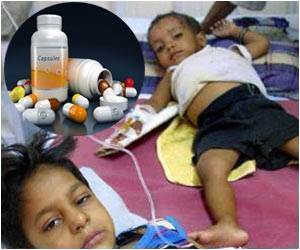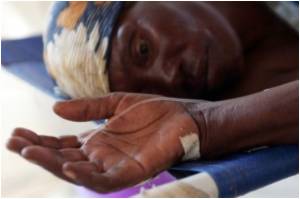
Now, the chikungunya virus that has been spreading in the Caribbean has emerged as another crisis in the poorest country in the Americas.
Transmitted by mosquitoes, the virus causes high fever and severe joint pain, disproportionately striking poorer neighborhoods where homes often have no windows or screens.
"We are putting in place steps to fight the chikungunya outbreak which is being felt almost nationwide," Duperval added.
The measures include fumigation and medications, she said.
There had been no cholera in Haiti for at least 150 years until it was allegedly introduced to the Caribbean nation by Nepalese UN peacekeepers sent there in the wake of the disastrous earthquake in January 2010.
Advertisement
The tragedy originally left about a million people homeless.
Advertisement
Source-AFP











